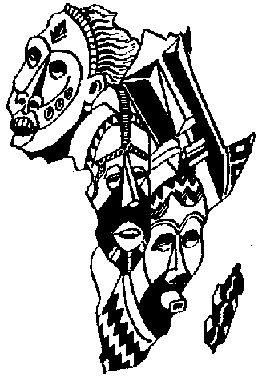Africa: U.S. launches trade policy review
Last June, Congress mandated that U.S. Trade Representative Michael Froman examine ways to advance trade relations with African nations beyond one-way trade preferences. In response, Ambassador Froman held a hearing in Washington, D.C. in January.
Last June, Congress mandated that U.S. Trade Representative Michael Froman examine ways to advance trade relations with African nations beyond one-way trade preferences. In response, Ambassador Froman held a hearing in Washington, D.C. in January. The following article was published in the March-April 2016 issue of NewsNotes.
US foreign policy toward the countries of Africa rests on three aspirations: peace, prosperity, and democracy. One policy aimed at fostering prosperity in Africa is a piece of legislation called the Africa Growth and Opportunity Act (AGOA), which provides trade preferences to imports from some sub-Saharan African nations. “Trade not aid” is the catch phrase of this policy since its inception in 2000.
In June 2015, Congress extended the AGOA for another ten years. Today, according to the U.S. Trade representative, the question is whether we also need to develop new trade policies for the new Africa of the 21st century. To answer this question, the US Trade Representative Michael Froman invited experts representing business, the U.S. Congress, think tanks, labor and trade organizations to a “Beyond the AGOA” hearing. Their testimonies offered ways to move toward more permanent, reciprocal trade and investment arrangements and away from the tariff wavers approach of AGOA.
Ambassador Froman began the hearings by explaining why expanding trade with Africa makes sense for the United States. Even though Africa currently represents only 3 percent of all global trade, during the next five years sub-Saharan Africa’s GDP is forecast to grow 30 percent faster than the rest of the world. This growth underlies the reason the U.S. not only extended AGOA but seeks to expand trade with Africa. By 2030, a quarter of the world’s workforce and almost a quarter of its consumers will live in Africa.
Ambassador Froman listed the reasons why he believes that deeper trade and investment ties with Africa will serve U.S. policy interests. First, it will expand the market for U.S. exports. Also, he believes it will advance U.S. peace and security interests by preventing conflicts. Third, it will alleviate poverty. Finally, it will stress democratic governance, economic growth and strong labor and environmental standards.
Deepening trade and investment with the United States should, in the “beyond AGOA” framework, also benefit the economies of African countries. The recent slowdown in economic growth in China has caused commodity prices, and subsequently, the demand for African exports, to fall. Between 2014 and 2015, China’s imports from African countries dropped from $110 billion to $50 billion. In the next decade, African traders will have to find new sources of demand not based primarily on the export of commodity resources. The U.S. wants to be one of these sources of demand but, Ambassodor Froman pointed out, “the policy environment matters.” The old tariff preference policies of the AGOA era are “not sufficient to generate significant new trade and investment.” To move beyond AGOA, a new policy environment needs to be created that addresses matters such as prohibitive duties, intellectual property protection, and standard conformity with international norms. Capacity constraints like thick borders and poor infrastructure need to be dealt with, too, as well as the development of regional economic communities like the Tripartite Free Trade initiative. Policy reform is the new watchword for trade and investment in Africa.
Indeed, the U.S. has already begun to move beyond AGOA through its Trade Africa initiative with the East African Community – Burundi, Kenya, Rwanda, Tanzania, and Uganda. On a recent visit to Rwanda, the U.S. Secretary of Commerce, Penny Pritzker, was accompanied by several senior executives of the President’s Advisory Council on Doing Business in Africa who are charged with making recommendations to the president and the secretary of commerce on policy steps that can strengthen commercial engagement between the U.S. and African nations. In a report on their visit with the president of Rwanda, Secretary Pritzker noted that the United States expressed disappointment that President Kagame has chosen to run for a third term in 2017. At the same time, the U.S. praised Rwanda’s contributions to peacekeeping. Ironically, not too long after that visit, the UN reported that Rwanda was recruiting and training Burundian refugees to oust neighboring president Pierre Nkurunziza of Burundi.
In its push to promote a new kind of mutually beneficial trade relationship with African nations, the U.S. is forthright about wanting African governments to create a new policy framework that facilitates American trade and investment programs. The U.S. is challenged to link these proposals with demands for good governance and democratic practices.

